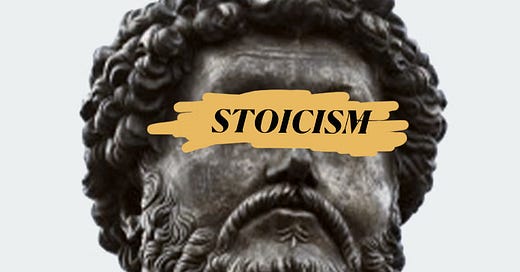Stoicism and the jobsearch
Stoicism, an ancient philosophy founded in Athens by Zeno of Citium in the early 3rd century BC, teaches the development of self-control and fortitude as a means to overcome destructive emotions.
In today's fast-paced and often stressful world, stoicism can be a powerful tool, especially during the job search process.
Here’s how adopting a stoic mindset can enhance your interviewing success.
Understanding Stoicism
Stoicism emphasizes the importance of wisdom, courage, justice, and temperance.
It encourages focusing on what is within our control and accepting what is not.
By applying these principles to the job search, you can maintain a calm, rational, and proactive approach.
1. Focus on What You Can Control
Why It Matters:
The job search process is filled with uncertainties and factors beyond your control, such as the economy, the job market, and the decisions of hiring managers.
Stoicism teaches that while you cannot control these external factors, you can control your actions and responses.
Application:
Preparation: Invest time in preparing for interviews, improving your resume, and building your skills. This proactive approach increases your chances of success.
Positive Mindset: Focus on maintaining a positive attitude and confidence in your abilities, regardless of the outcome.
Stoic Principle: "You have power over your mind—not outside events. Realize this, and you will find strength." – Marcus Aurelius
2. Accept and Learn from Failure
Why It Matters:
Rejection is a common part of the job search process. Stoicism teaches that setbacks and failures are opportunities for growth and learning.
Application:
Reflect on Feedback: If you receive feedback from an interviewer, use it constructively to improve your future performance.
Resilience: Understand that rejection is not a reflection of your worth but rather a step towards finding the right fit.
Stoic Principle: "The impediment to action advances action. What stands in the way becomes the way." – Marcus Aurelius
3. Maintain Emotional Equilibrium
Why It Matters:
Interviews can be stressful and anxiety-inducing. Stoicism encourages maintaining emotional balance and not being swayed by external events.
Application:
Mindfulness and Breathing: Practice mindfulness and deep breathing techniques to stay calm during interviews.
Detach from Outcomes: Focus on doing your best rather than obsessing over the result. This reduces anxiety and allows you to perform more effectively.
Stoic Principle: "If you are distressed by anything external, the pain is not due to the thing itself, but to your estimate of it; and this you have the power to revoke at any moment." – Marcus Aurelius
4. Practice Virtue
Why It Matters:
Stoicism emphasizes the importance of virtues such as honesty, integrity, and fairness. Demonstrating these qualities can significantly enhance your attractiveness to potential employers.
Application:
Honesty: Be honest about your experiences and qualifications. Authenticity builds trust with interviewers.
Professionalism: Treat everyone with respect and kindness, from the receptionist to the hiring manager.
Stoic Principle: "Waste no more time arguing what a good man should be. Be one." – Marcus Aurelius
5. Embrace the Present Moment
Why It Matters:
Worrying about the future or dwelling on past mistakes can hinder your performance. Stoicism encourages living in the present moment and making the most of it.
Application:
Focus on the Interview: Concentrate fully on the interview at hand rather than worrying about future interviews or past rejections.
Active Listening: Engage fully with your interviewer, listen carefully, and respond thoughtfully.
Stoic Principle: "Confine yourself to the present." – Marcus Aurelius
6. Develop Inner Strength
Why It Matters:
Stoicism teaches the cultivation of inner strength and resilience. This inner strength helps you face challenges with courage and determination.
Application:
Self-Belief: Cultivate a strong belief in your abilities and potential. This confidence will shine through in your interviews.
Perseverance: Keep pushing forward, even in the face of setbacks. Each effort brings you closer to your goal.
Stoic Principle: "It does not matter what you bear, but how you bear it." – Seneca


